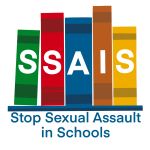Stop Sexual Assault in Schools is Global Girls Worldwide Women Advocate/Resource of the Month!
by Esther Warkov, SSAIS co-founder Adapted from the September, 2023 newsletter of Global Girls Worldwide Women. I didn’t plan to become an activist in my 60s until our daughter was raped on a high school field trip. Like most parents,
